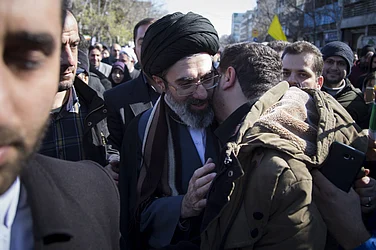Iran and Russia have agreed to conduct trade using their local currencies instead of the U.S. dollar, as reported by Iran's state-run news agency IRNA on Wednesday.
"The establishment of new financial and banking platforms has opened a 'new chapter' in banking relations between Iran and Russia, with the two countries agreeing to ditch the U.S. dollar and instead trade in local currencies," stated IRNA, citing information from the Central Bank of Iran.
This agreement was finalised during a meeting held in Russia between the central bank governors of both nations.
Members of the Russian-led Eurasian Economic Union (EEU) signed a comprehensive free trade agreement with Iran on Dec. 25.
Iran has become increasingly important for the Kremlin after Western sanctions over Moscow's war in Ukraine limited Russia's foreign trade routes and forced it to look for markets outside Europe.
The Persian-Russian Connection
According to an article on the Lawfare multimedia publication, The Persian-Russian Connection, Tehran views its informal alliance with Russia as strategically attractive, despite historical and ideological oddities.
Both Iran and Russia are currently under U.S. sanctions.
While Iran and Russia have been rivals for nearly two centuries, today, the Islamic Republic seeks a powerful ally, and Russia fits the bill.
Former Supreme Leader Ruhollah Khomeini's disdain for the Soviet Union has shifted, as Iran now requires strong backing. Russia's position on the UN Security Council provides Iran with diplomatic leverage, and their shared rejection of democracy strengthens their bond.
Moscow's interest in Tehran is rooted in common anti-U.S. sentiments, opposition to democratic values, and wariness of Sunni Muslim fundamentalism.
The Iran-Russia relationship originated from intelligence cooperation to monitor Sunni fundamentalist groups in the Caucasus and Central Asia after the USSR's collapse. Both nations fear regional unrest in the Middle East but see opportunities to expand their influence.
This shared interest prompted Russia to expand its ties with Iran, including arms sales and, in 2015, military intervention in Syria to support Assad at Iran's request. Together, Iran and Russia played a pivotal role in saving the Assad regime in Syria, the article added.






















